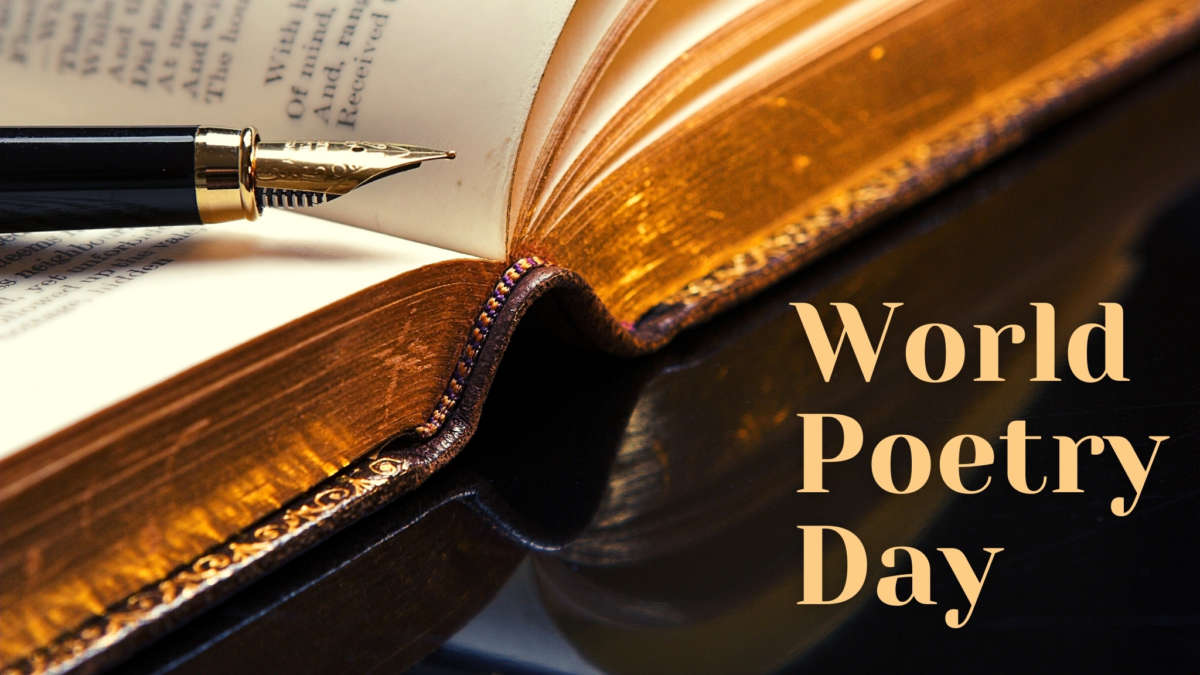Sunday, March 21 may not immediately seem like an international holiday, but I’m here to tell you that it’s a day to celebrate and honor an art form that resonates with all of us in some way: poetry.
Now, I’ll be the first to admit that I haven’t always been the biggest fan of poetry. In fact, back in my college days, my friends would tell you that I proudly proclaimed that I hated the stuff. A few stellar English classes with great professors taught me just how wrong I was (while also teaching me things like hexameter, “The Rime of the Ancient Mariner,” and the stylistic differences between Shelley and Keats).
Poetry can be aesthetically beautiful, linguistically impressive, intellectually arresting, and, perhaps most trenchantly, emotionally poignant. We all connect with it in a uniquely personal way, and a seemingly random work may conjure up inexplicable wonder.
To celebrate this holiday, and the joy a poem can bring to someone’s life, I asked my colleagues from BookTrib and Meryl Moss Media to tell me a little a bit about their favorite poems. In doing so, I’ve discovered some gems, and have felt that inexplicable feeling quite a few times. I sincerely hope that you do, too. In fact, do you have a poem you’d like to share? I’d love to hear from you in the comments below.
Please enjoy reading these selections and getting to know our team a little better. Happy World Poetry Day!
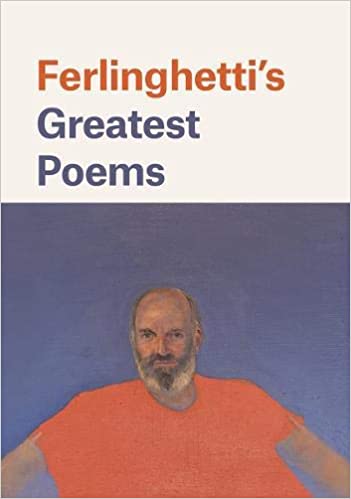
“Pity The Nation” by Lawrence Ferlinghetti
Pity the nation whose people are sheep,
and whose shepherds mislead them.
Pity the nation whose leaders are liars, whose sages are silenced,
and whose bigots haunt the airwaves.
Pity the nation that raises not its voice,
except to praise conquerors and acclaim the bully as hero
and aims to rule the world with force and by torture.
Pity the nation that knows no other language but its own
and no other culture but its own.
Pity the nation whose breath is money
and sleeps the sleep of the too well fed.
Pity the nation — oh, pity the people who allow their rights to erode
and their freedoms to be washed away.
My country, tears of thee, sweet land of liberty.
This poem is so appropriate for our times. I love Ferlinghetti’s work, and some of the poetry I’ve written is similar to his, I’m told; so we’re connected in spirit. —Deb Zipf
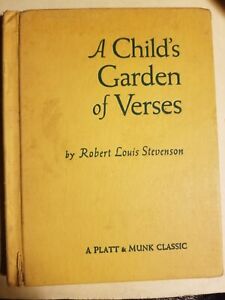
My Shadow by Robert Louis Stevenson
I have a little shadow that goes in and out with me,
And what can be the use of him is more than I can see.
He is very, very like me from the heels up to the head;
And I see him jump before me, when I jump into my bed.
This is an oldie but a goodie. When I was a child, we had the poetry book, A Child’s Garden of Verses by Robert Louis Stevenson, that I read over and over again. In 4th grade, we all had to choose a poem and memorize it in its entirety and recite it in front of the class. I chose my favorite, “My Shadow” from this book. To this very day (%!& years later) I actually still remember most of it. Here’s a coincidental aside — many years ago, I worked with a woman who was married to Robert Louis Stevenson’s grandson! Sometimes life comes full circle. —Barb Wilkov
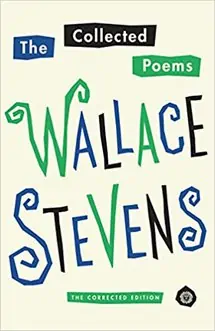
A Rabbit as King of the Ghosts by Wallace Stevens
… The grass is full
And full of yourself. The trees around are for you,
The whole of the wideness of night is for you,
A self that touches all edges,
You become a self that fills the four corners of night.
The red cat hides away in the fur-light
And there you are humped high, humped up,
You are humped higher and higher, black as stone—
You sit with your head like a carving in space
And the little green cat is a bug in the grass.
Wallace Stevens really speaks to me. His poetry has had a profound impact on my own work as a poet and songwriter. Between Wallace’s musical use of language, his evocative imagery, and the tight focus on states of mind and being, this particular excerpt completely transports me into another world. —Cynthia Conrad
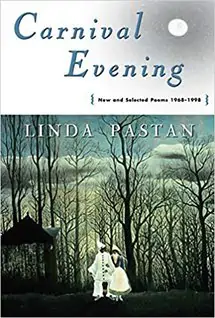
Wildflowers by Linda Pastan
You gave me dandelions
They took our lawn
by squatters’ rights — round suns rising
in April, soft moons
blowing away in June.
You gave me lady slippers,
bloodroot, milkweed,
trillium whose secret number
the children you gave me
tell. In the hierarchy
of flowers, the wild
rise on their stems
for naming.
Call them weeds.
I pick them as I
picked you,
for their fierce,
unruly joy.
I love this poem for multiple reasons. First, people should read more Linda Pastan, especially fans of Mary Oliver. Both poets grapple with mortality and use the natural world as a framing device. As a gardener and former gardening magazine editor, I deeply appreciate the metaphor of the weed and the allusion to untamed beauty — and unconquerable love. —JeriAnn M. Geller
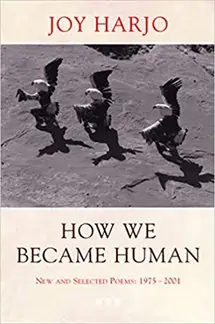
A Map to the Next World by Joy Harjo
We were never perfect.
Yet, the journey we make together is perfect on this earth who was
once a star and made the same mistakes as humans.
We might make them again, she said.
What I love most about this poem is the way Harjo acknowledges human fault as both a part of our nature and our responsibility. She writes about a metaphorical map that we both inherit from history and previous generations, but also have to write for ourselves. While this poem specifically discusses human treatment of nature, I think her powerful ideas about making mistakes are applicable to the narrative of progress as a whole … “there is no beginning or end.” —Chelsea Ciccone
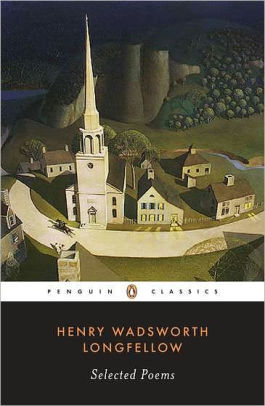
My Lost Youth by Henry Wadsworth Longfellow
Often I think of the beautiful town
That is seated by the sea;
Often in thought go up and down
The pleasant streets of that dear old town,
And my youth comes back to me.
And a verse of a Lapland song
Is haunting my memory still:
“A boy’s will is the wind’s will,
And the thoughts of youth are long, long thoughts.
Both Longfellow and I grew up on the West End of Portland, ME. It captures his fondness for it and explains why, in part, those who leave it often return. —Mary E. Regan
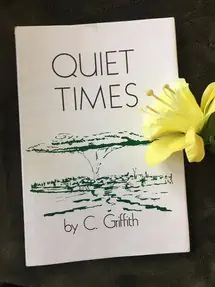
When Summer Comes by C. Griffith
When summer comes we can walk in glorious sunshine, over the thick, cool, green grass.
We can love together, bathed in moonlight and the magical heat of midnight, when summer comes.
As the world begins to emerge from a year of darkness and solitude due to COVID-19, this poem celebrates the positive aspects of life, concentrating on what is good and right, rather than on what is wrong and negative. “Quiet Times” is a remarkably moving book of thoughts about love, nature, the human condition, freedom, responsibility and eternity. I discovered this poet through a dear friend who introduced me to the poet’s son. Since his mother’s passing from cancer, he has been thinking about publishing a second edition (the first is out of print) with some of her unpublished pieces to honor her memory and keep her legacy alive. I hope he succeeds. It’s a wonderful tribute from son to mother. —Carole Claps
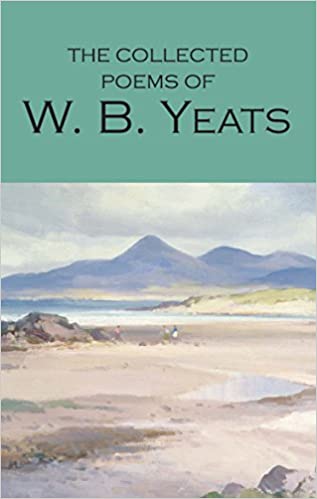
The Lake Isle of Innisfree by William Butler Yeats
I will arise and go now, and go to Innisfree,
And a small cabin build there, of clay and wattles made;
Nine bean-rows will I have there, a hive for the honey-bee,
And live alone in the bee-loud glade.
And I shall have some peace there, for peace comes dropping slow,
Dropping from the veils of the morning to where the cricket sings;
There midnight’s all a glimmer, and noon a purple glow,
And evening full of the linnet’s wings.
I will arise and go now, for always night and day
I hear lake water lapping with low sounds by the shore;
While I stand on the roadway, or on the pavements grey,
I hear it in the deep heart’s core.
I chose “The Lake Isle of Innisfree” for three reasons. First of all, it was a work that I had to memorize for a class, and both the poem and the semester sparked my interest in poetry as an art form. Secondly, it graces one of my favorite films, the wonderful The Quiet Man, which my close friend and I love to revisit every spring. The 1952 movie is set on Innisfree itself, and the cinematography only adds to my longing to visit the stunning isle. Lastly, I simply think the piece is beautiful. Yeats’ poem evokes an exquisite serenity and reminds me of my love of the natural world. —Judy Moreno
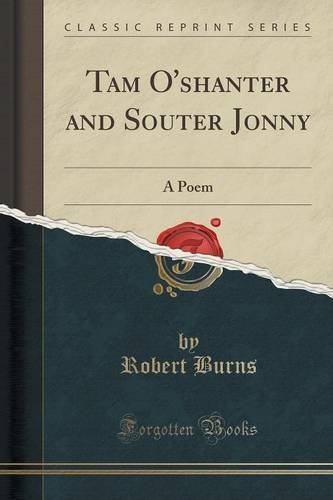
Tam O’ Shanter by Robert Burns
The wind blew as ‘twad blawn its last
The rattling showers rose on the blast
The speedy gleams the darkness swallow’d
Loud, deep, and lang, the thunder bellow’d
I love this poem because it’s a good old-fashioned ghost story. Robert Burns perfectly captures the creepy atmosphere, and the full poem sends a chill down your spine. It’s far more evocative than simply saying “it was a dark and stormy night” — thanks to Burns’s writing, you feel as if you’re in the thick of the storm along with the main character. The first time I heard this poem was on a Halloween radio broadcast, and now every autumn I make sure to give it another listen. —Cameron Kimball
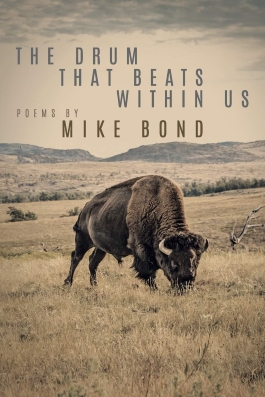
Like a Moose We Wander by Mike Bond
Like a moose we wander,
sink noses into meadows,
succulent green and mud,
willow bud and bark,
icy water purling over rock
flakes of mica, bog and blood. …
Mike Bond’s poetry spans a wide range of subject matter, from love to war and death, as well as the big, existental questions we face as humans. But it is the majesty of his nature poems that really sing (at least for me), as in this opening to the poem “Like a Moose We Wander.” The language is gorgeous, you can feel the dampness and practically smell the earth. —Gerri Silver
Read our review of The Drum That Beats Within Us here.

High Flight by John Gillespie Magee
And danced the skies on laughter-silvered wings;
Sunward I’ve climbed, and joined the tumbling mirth
Of sun-split clouds, — and done a hundred things
You have not dreamed of – wheeled and soared and swung
High in the sunlit silence. Hov’ring there,
I’ve chased the shouting wind along, and flung
My eager craft through footless halls of air…
Up, up the long, delirious burning blue
I’ve topped the wind-swept heights with easy grace
Where never lark, or ever eagle flew —
And, while with silent, lifting mind I’ve trod
The high untrespassed sanctity of space,
Put out my hand, and touched the face of God.
This poem speaks volumes to me because some of the words in it were used during an emotional time in our country. Back in 1986, President Ronald Reagan included parts of the poem in a speech that he delivered to a nation that was thrust into an unspeakable tragedy within a blink of an eye. He used the lines “slipped the surly bonds of Earth” and “touched the face of God” in his address to the American people following the Challenger space shuttle incident that claimed the lives of all on board.
What was supposed to be a day of awe for the United States in its quest to be successful in the space race against the Soviet Union turned out to a day of great sadness and mourning following the death of the men and women of the Challenger flight crew. The way the President spoke to a grieving nation using lines from the poem was both inspiring and comforting. It reminded us why he was given the nickname “The Great Communicator.” Historians have called this speech one of Reagan’s finest and one of the best of the 20th century. I love this poem because of the emotions that it brings! —Andrew Massi

